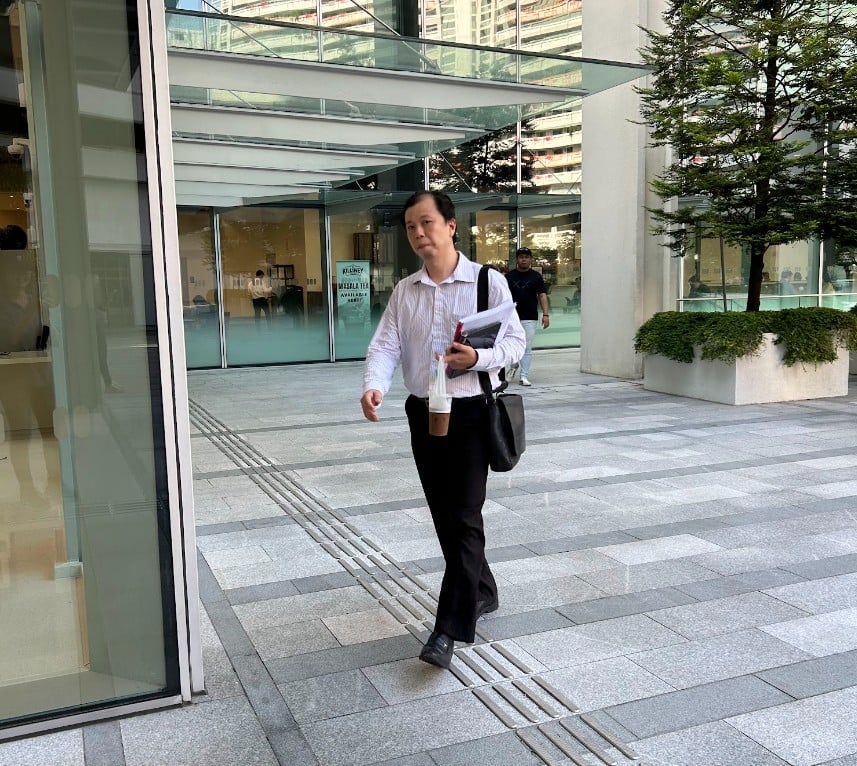SINGAPORE: On 28 July 2025 the State Courts ruled that six statements Dr Jipson Quah gave while in remand from 22 to 29 January 2022 are admissible.
Judge Paul Quan held that the prosecution proved voluntariness beyond reasonable doubt and that the defence raised no credible doubt.
Quah, 37, faces seventeen counts of dishonest false representation.
Six allege conspiracies with anti-vaccination campaigner Iris Koh Hsiao Pei, 49; another six involve former clinic assistant Thomas Chua Cheng Soon, 43; the remainder implicate individual patients.
Prosecutors allege that Quah administered saline (or sub-doses of vaccine) while former clinic assistant Thomas Chua handled clinic paperwork, and that Iris Koh conspired by recruiting or referring patients and encouraging them to take part in the fabrication.
Quah had applied to exclude six investigation statements recorded during remand between 22 and 29 January 2022, arguing they were secured through inducements and therefore involuntary.
The court convened an ancillary hearing—essentially a mini-trial—solely to decide that issue, not guilt.
An ancillary hearing determines only voluntariness.
The prosecution must negate any threat, inducement or promise (TIP) beyond reasonable doubt; the defence need only evoke a reasonable doubt.
Under section 279 Criminal Procedure Code, the court may revisit admissibility if fresh evidence later emerges.
During hearings on 11–14 March 2025, Quah testified that Investigation Officer Ng Shiunn Jye said he would remain in custody unless he supplied at least fifteen patient names alleged to have received fake vaccinations from his clinic and portrayed Koh as mastermind.
Quah also described a “secret” 28 January 2022 meeting with Senior Investigation Officer Tan Pit Seng at the lock-up, where Tan allegedly told him to “show remorse” by heightening Koh’s role before bail could be recommended.
He called passages in his statements “flowery fiction”, blaming fear of missing Chinese New Year for embellishing details.
The prosecutors argued no TIP occurred and said Quah’s inducement account grew “steadily in scope”, undermining credibility.
Judge Quan ruled Ng made no bail promise: any bail decision lay with the court, and Quah mistakenly believed his charge was non-bailable, so an offer could not influence him.
According to the judgement, Quah’s evolving allegation amounted to a self-perceived inducement, which “cannot in law amount to an inducement”.
As for Tan, the judge considered his equivocal memory—“may have happened, may not have happened”—more credible than rehearsed denials.
Tan therefore did not urge Quah to embellish Koh’s culpability.
Defence grilling of police logs
After Quah left the stand, lawyer Adrian Wee recalled Ng to confront contradictions in electronic access records, lock-up diaries and a handwritten statement.
Access-pass data showed Ng inside Basement-1 lock-up from 15 : 24 to 23 : 32, and Tan from 20 : 15 to 22 : 05, longer than Ng’s claim that the meeting lasted fifteen minutes.
The handwritten statement was marked “completed 20 : 20” even though Ng’s pass recorded him on level 3 at 20 : 19. Ng suggested he might have tailed someone through the security door without tapping.
Wee ended cross-examination by putting it that Ng was “caught in a lie”.
The judge acknowledged that the pass logs, diaries and oral recollections “were not in sync”, yet held that the evidence “stood as they were, warts and all, untailored and without any signs of collusion”.
Discrepancies were “attributable to human fallibility” and a flawless narrative would look suspicious.
Therefore the mismatches were “not fatal” to voluntariness.
Hand-written timing dispute
Defence said the 20 : 20 completion time had to be false.
The judge replied that proving falsification required evidence of collusion, which was absent; he accepted the notation.
Post-bail statements
Three further statements—14 February, 30 March and 14 April 2022—recorded after Quah’s release continued to identify patients and implicate Koh and Chua.
The defence did not challenge their voluntariness. The judge treated them as contemporaneous proof that any alleged inducement had ceased.
Judge on self-perceived inducement and credibility
The judgment states that if an accused’s evidence is “inherently incredible” no evidential burden shifts to the prosecution.
Quah’s narrative expanded with each cross-examination session, leading the court to prefer objective records and officer testimony.
Safeguards and “red herrings”
Quah was allowed telephone calls and could type parts of his statements; Judge Quan regarded such operational choices as irrelevant to voluntariness.
Allegations of special food were dismissed as “red herrings”.
Medical and psychiatric appointments on 24 January 2022 were “unexceptional”, and Quah raised no inducement claims to doctors.
Having found no objective TIP and no subjective inducement, Judge Quan ruled all six contested statements admissible.
He emphasised that admissibility does not equate to truth; reliability will be assessed as the main trial proceeds.
Speaking to The Online Citizen, Quah said his legal team “is reviewing the verdict and exploring further options” but did not say whether an appeal will follow.
Chua told TOC he is now legally represented.
Koh has issued no public comment since the ruling; her lawyer previously argued the statements were obtained under pressure while Quah was in remand.
The trial, which opened in December 2024, is scheduled to resume later in August 2025 for further witness testimony and cross-examination.

Thomas Chua at the State Courts on 28 July 2025
The post Judge rules remand statements by Dr Jipson Quah admissible after finding no threats, promises or inducements appeared first on The Online Citizen.


